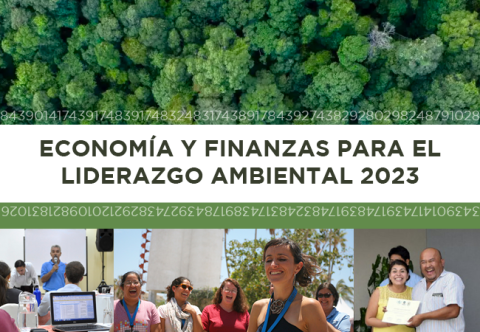
Economía y Finanzas para el Liderazgo Ambiental (Economics and Finance for Environmental Leadership) was the first ever 100% online and Spanish version of CSF’s renowned Economics and Finance for Environmental Leadership course. The objective of the course was to teach Latin American professionals essential economic tools they can apply to their nature conservation work. The course helped participants design more effective conservation programs and enabled course participants to better assess the socio-environmental impacts of planned development projects.
The course was directed toward professionals and academics working in conservation and sustainable management of natural resources in the private, public, and non-profit sector.
Methodology
The course was a dynamic combination of asynchronous lessons and virtual discussion sessions with experienced professors and seasoned professionals from throughout Latin America. The course was hosted on the Numbers For Nature Training Institute and through live Zoom sessions. Pre-recorded lectures, lecture materials, and readings were hosted on the Numbers for Nature Training Institute, and participants were asked to complete about two hours of work per week on the platform. Two live sessions of two hours each were held each week where the instructor reviewed key points, responded to questions, presented case studies, and led course exercises.
35 students from 8 countries participated in the 14-week course.
The course included eight total modules, covering the following topics:
- An introduction to economics
- Cost Benefit Analysis
- Financial planning
- Natural Resources Economics
- Ecosystem services and economic valuation
- Behavioral economics
- Financial solutions
- Environmental policy
Course participants obtained:
- An essential foundation in basic economic concepts and language.
- Insight into the institutional and market drivers of environmental problems.
- Tools to evaluate the costs and benefits of both development and conservation decisions, including values of ecosystem services.
- Tools to identify and evaluate the value of ecosystem services.
- Skills to incorporate economic incentives in more effective strategies and policies for conservation, including sustainable finance solutions.
- The ability to articulate environmental values in a language that communities, businesses, and governments can understand.
